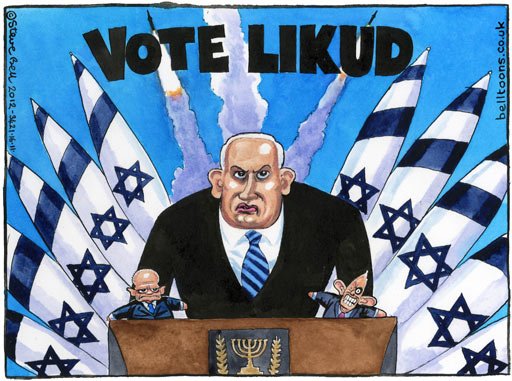The Guardian’s Middle East editor Ian Black published a report on July 16 about new EU guidelines on Israeli “settlements” – a so-called “territorial applicability clause” which spells out the rules, beginning in 2014, on funding projects across the green line. Whilst the original story in Haaretz – as Yair Rosenberg explained in a superb piece at Tablet – significantly exaggerated the importance of the new policy, Black’s story included a passage which itself reflects an extremely skewed understanding of the region.
Black wrote the following:
The EU’s “territorial applicability clause” spells out that there can be consequences for flouting UN resolutions and international legality. Not enormous ones, true, but they still include funding, co-operation, scholarships, research funds and prizes for institutions in Jewish settlements in the West Bank and East Jerusalem…
…
The new Brussels guidelines are hardly the “earthquake” described in Jerusalem. But they do reflect changes on the ground in the territory that Israeli rightwingers call by the biblical names of Judea and Samaria and do not recognise as the heartland of Palestinian national aspirations.
However, Black’s implication that the term “West Bank” is the historically correct term and “Judea and Samaria” are modern, right-wing “settler” terms, has no basis in fact. The term “West Bank” was not a term ever used by the area’s inhabitants or, for that matter, by anyone at all, until King Abdullah’s army occupied the territory after crossing the Jordan westward during the 1948 Arab-Israeli War.
As the Language Blog at the Jewish Daily Forward explained:
“Judea” and “Samaria,” the Hebrew “Yehuda” and “Shomron,” are not [merely] biblical words for the hill districts south and north of Jerusalem that were revived by Israeli nationalists after the 1967 war. That is, they are indeed biblical words, but they have been used by Jews through the ages and have been the standard Hebrew terms for these parts of Palestine since the beginnings of Zionist settlement in the late 19th century.
In 1950 (a year after Israel’s War of Independence) Abdullah annexed the “West Bank,” [a translation of the Arabic term al-daf’a al-gharbiya] – a move that was protested by the rest of the Arab world as a land grab over the heads of the Palestinians. Already, the previous year, he had changed the official name of his country from The Hashemite Kingdom of Transjordan to The Hashemite Kingdom of Jordan to indicate that it now comprised territory on both sides of the Jordan River rather than only on its eastern side. And to drive home this point, the Jordanians encouraged the use of the terms “East Bank” and “West Bank” as a way of stressing that theirs was a single country that straddled a river running through it. Eventually, “West Bank” became a term used by the “West Bankers” themselves, as well as by the rest of the world.
After the 1967 Six Day War, the term “West Bank” became more common among many on the left to refer to “Judea and Samaria” as a way of expressing opposition to Jews’ re-established presence in the land – as if these lands were suddenly, due to the political situation, devoid of Jewish history.
As Elder of Ziyon noted, official UN documents routinely used “Judea and Samaria” until the end of the British Mandate, and in fact didn’t begin capitalizing the words “West Bank” until after the Six Day War. Further, before there were any settlements all, the Israeli government led by the left-wing Labor Party (under Levi Eshkol) called the area “Judea and Samaria” – as this 1968 UPI article, to cite but one example, shows.
“Judea and Samaria” (Yehuda and Shomron) are the proper Hebrew words for “the central hill country of [historic] Palestine between the Galilee and the Negev”, and using “West Bank” merely because that term became popular under Jordanian rule, which lasted less than 20 years, makes no more sense than referring to eastern Jerusalem as “historically Arab East Jerusalem” because, during that same short span, Jews were ethnically cleansed from the area.
Palestinians routinely use language which downplays or erases Jews’ connection to Jerusalem and the entire land of Israel, and those in the media who use “right-wing” (in the pejorative) to characterize Israelis who fight back against such ahistorical narratives demonstrates how susceptible they are to the most cynical anti-Zionist propaganda.


